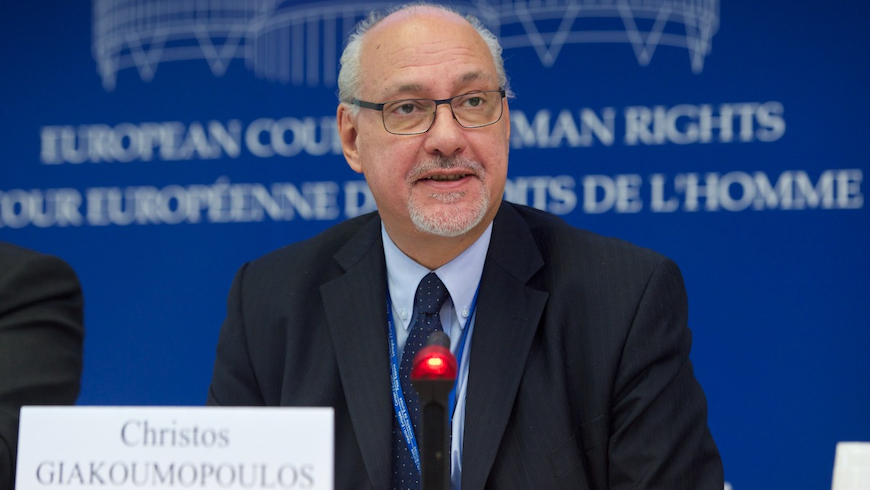Welcoming remarks by Christos Giakoumopoulos
International Conference: Immigration Detention of Children: Coming to a Close?
25 - 26 September 2017, Prague
Minister,
Ladies and Gentlemen,
It is my honour to join Minister Pelikán in welcoming you to this international Conference, hosted within the framework of the Czech Chairmanship of the Committee of Ministers of the Council of Europe.
I would like to extend my warm thanks to the Czech authorities, Minister Pelikán and the Czech Ministry of Justice, in particular Vít Schorm and his dedicated team, for their initiative, professionalism and efficiency in organising this Conference.
-o0o-
Ladies and Gentlemen,
Today´s reality is that children make up a striking proportion of the migrant and refugee population, not only in Europe but globally.
Many of them are fleeing war, conflict, persecution, discrimination, poverty and other precarious situations. On their journey, they are all too often exposed to severe risks of human rights violations, including violence, abuse, exploitation and neglect.
These children come from different countries. They may leave behind different personal scenarios, and have different individual stories, for which we may have different levels of sympathy. But they all have, at least, two things in common: (a) they are particularly vulnerable and exposed; and (b) they need protection and care. Not only do they need protection, but it is their international right to receive it. Our States have a duty to grant this protection.
This is not only a legal obligation. It is more than that. In a globalized world, these children, just like children in Prague, Strasbourg, Lesvos or Calais, will make our common future. Their determination to build a world of tolerance, prosperity and freedom, or to revert to violence, hate and fear, will shape the future and the destiny of our civilisation.
As for detention, the right to freedom and security, on which human rights are based, at least since the Habeas Corpus Act, is central to our civilisation and to democracy.
This Conference will thus ask some fundamental questions on children and detention, in other words, on our future and our freedoms. It will ask whether normalizing detention is a major conceptual change for our societies. It will ask to what extent child detention as such raises an issue of compliance with international human rights standards. It will ask when, if ever, detention is in the best interests of the migrant child. It will ask about the impact of detention on the health, well-being and development of the child, with or without its parents or caregivers; and it will ask about the dynamic relationship between detention and vulnerability.
Crucially, the Conference will ask what we are going to do about the situation; how exactly we shall continue moving forward and forge results. It will ask about other and better ways of doing things.
This is where alternatives come into the picture. Developing effective alternatives to immigration detention may, of course, prove a challenging task on the ground, but promising examples show that it is far from an impossible one. And, for children, it is a necessity. But if this necessity is to become a lived reality, we need to enhance, spread and further develop not only principles but practices that States believe in and want to adopt.
The day may indeed come, when we do not speak of “alternatives” to detention for migrant children, for the simple fact that detention will never be an option. That day may be close, but it has not yet arrived. We must understand why, analyse the risks of the situation, and address the root causes and concerns.
-o0o-
In closing, let me again, on behalf of the Council of Europe, wish you all warmly welcome to this Conference. I wish you fruitful discussions and thank you for your attention.




